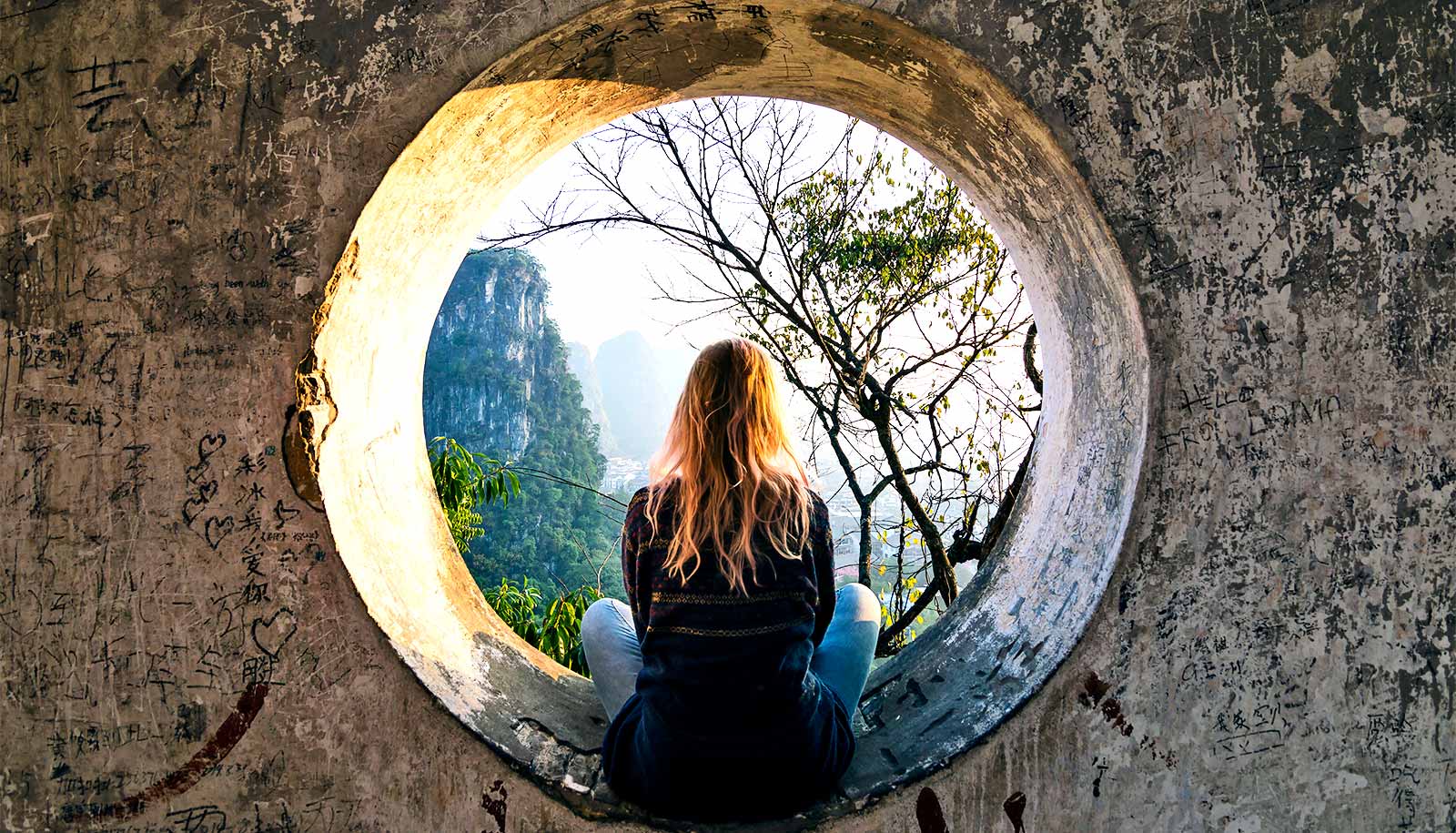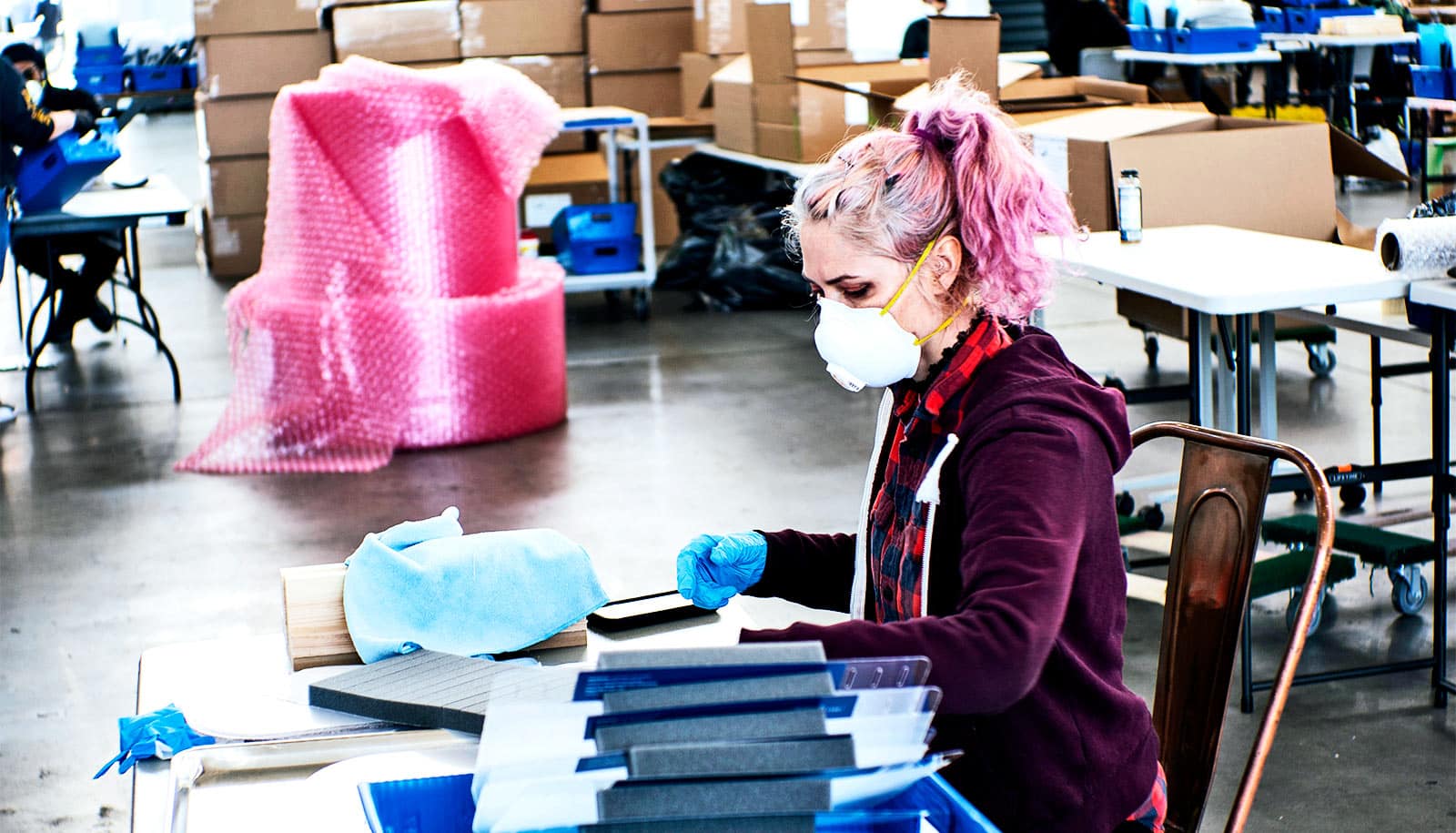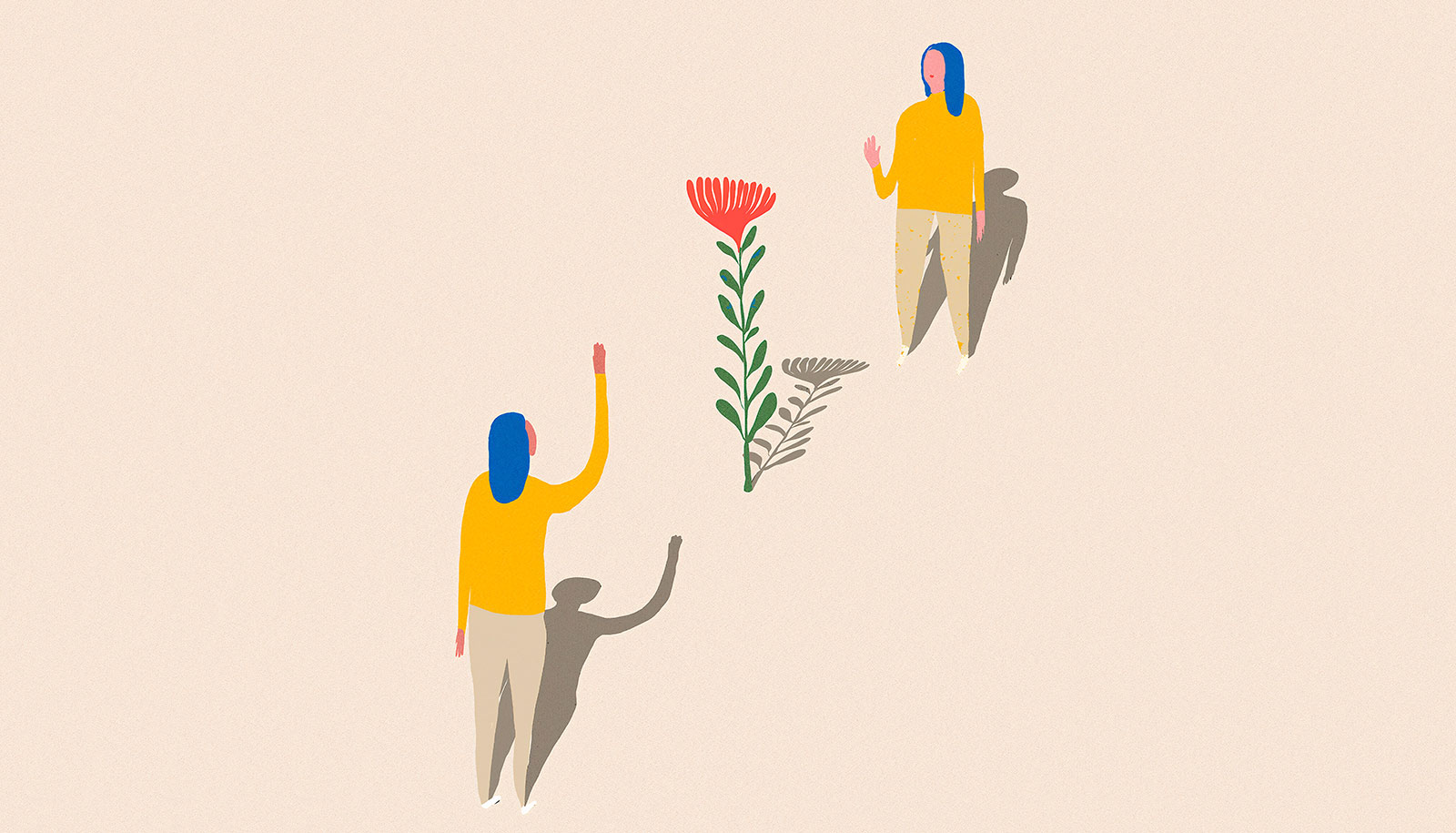
"The places we spend time in play such an important part in our everyday lives. Yet, for a long time we didn't have a good understanding of why we prefer certain places over others, or how spending time in a particular place impacts who we are," says Sandra Matz. (Credit: Getty Images )
The places you go (or don’t) can change your personality
Where you spend time may shape who you are, new research shows, and spending so much time at home during the pandemic may shift your personality traits.
Our personalities and the places where we spend time seem to influence each other, researchers report.
If complying with shelter-in-place orders has made you feel more disorganized or less kind than usual, it may be because that’s what happens when you spend more time at home instead of public spaces, according to a new study.
“We found that when people spend time in social places, they tend to be more open-minded, extraverted, agreeable, conscientious, and less anxious compared to when they spend time at home,” says study coauthor Gabriella Harari, an assistant professor of communication at Stanford University.
“…people may be able to change their psychological experiences by changing their physical environment.”
The findings suggest that the places we choose to frequent can affect not only our thinking, feelings, or behavior in the moment, but may actually change our personalities over time.
“You typically have your home as a restorative base to come back to after engaging with the world, and it’s a way to break up your routine. Now, we’re constantly in just one place and people might feel that this impacts how they see themselves,” says study coauthor Sandra Matz, an assistant professor of management and organizational behavior at Columbia Business School.
“If you currently feel less creative than usual, for example, that might be the effect of just staying at home and not having the change in your environment.”
The research in the Journal of Personality and Social Psychology also suggests that different places hold different levels of attraction for people, depending on how extroverted or introverted they are.
Personalities and place
To study the relationship between people’s personalities and the places they spend time in, Harari and Matz recruited 2,350 college students at a US university campus.
Participants completed a standard personality test and then answered short surveys several times a day over a two-week period. The surveys asked them about the places they spent time in and how they felt at that particular moment.
In total, the researchers gathered some 63,000 responses. They identified 10 different types of places that included home, work, the library, cafés or restaurants, campus, a fraternity or sorority, a friend’s house, the gym, a place of worship, a store or mall, and being in a vehicle.
Using the “Big Five” model of personality traits that is a common tool of psychologists for understanding how people differ, the researchers were able to map how certain places can draw out certain aspects of a person’s personality in the moment and over time.
The Big Five personality traits that psychologists commonly use to measure differences in how people tend to think, feel, and behave are extraversion, agreeableness, conscientiousness, neuroticism , and openness.
“Your personality traits might influence your reactions to having to stay at home.”
To measure how people experienced this spectrum of feelings, the researchers asked participants five questions in which they rated the extent to which they had been: “quiet” (which was used to evaluate extraversion); “compassionate, has a soft heart” (agreeableness); “disorganized” (conscientiousness); “emotionally stable, not easily upset?” (neuroticism); and “having little interest in abstract ideas?” (openness).
Participants responded to these questions in short surveys that were administered throughout the day.
While the researchers found that places can draw out certain aspects of people’s personalities, their data also showed that people with certain personality traits are drawn to certain places. For example, people who tend to be more extraverted—a trait that reflects how sociable a person is—spent more time in public places, compared to more introverted people.
Stuck at home
“The places we spend time in play such an important part in our everyday lives. Yet, for a long time we didn’t have a good understanding of why we prefer certain places over others, or how spending time in a particular place impacts who we are,” Matz says. “Our findings provide a unique window into the ways in which people interact with their environment on a daily basis.”
This finding could also help explain why some people may be coping better than others with suggested recommendations to shelter in place at home, the researchers say.
“Your personality traits might influence your reactions to having to stay at home,” Harari says. “For example, our findings show that extroverts tend to go to more places than people who are introverted. This suggests that people who are extraverted might be having a harder time dealing with the stay at home orders, because they want to engage with other people and spend their time in public places where that socializing happens.”
The researchers hope that their findings can be a useful strategy that people can turn to when they want to change how they are thinking, feeling, or behaving in the moment.
“These findings suggest that people may be able to change their psychological experiences by changing their physical environment,” Harari says.
“For example, if a person is feeling anxious and moody at home, they might benefit from spending time in a social or public place like a friend’s house, a café, the gym, or a religious institution.”
Source: Stanford University
The post The places you go (or don’t) can change your personality appeared first on Futurity .
Share this article:
This article uses material from the Futurity article, and is licenced under a CC BY-SA 4.0 International License. Images, videos and audio are available under their respective licenses.
Related Articles:
When Americans go back to work, things won’t be the same
April 20, 2020 • futurityWill social distancing extend until mid-2021?
May 15, 2020 • futurityLinks/images:
- https://www.futurity.org/guilty-pleasures-covid-19-social-distancing-2316292/
- https://doi.org/10.1037/pspp0000297
- https://www.futurity.org/personality-traits-change-2222142/
- https://www.futurity.org/personality-traits-neuroticism-1616772-2/
- https://www.futurity.org/teens-social-distancing-2322732/
- https://www.futurity.org/distant-socializing-social-distancing-covid-19-2312002/
- https://news.stanford.edu/2020/06/11/who-we-are-depends-on-where-we-are/
- https://www.futurity.org/personality-places-2384332/
- https://www.futurity.org


